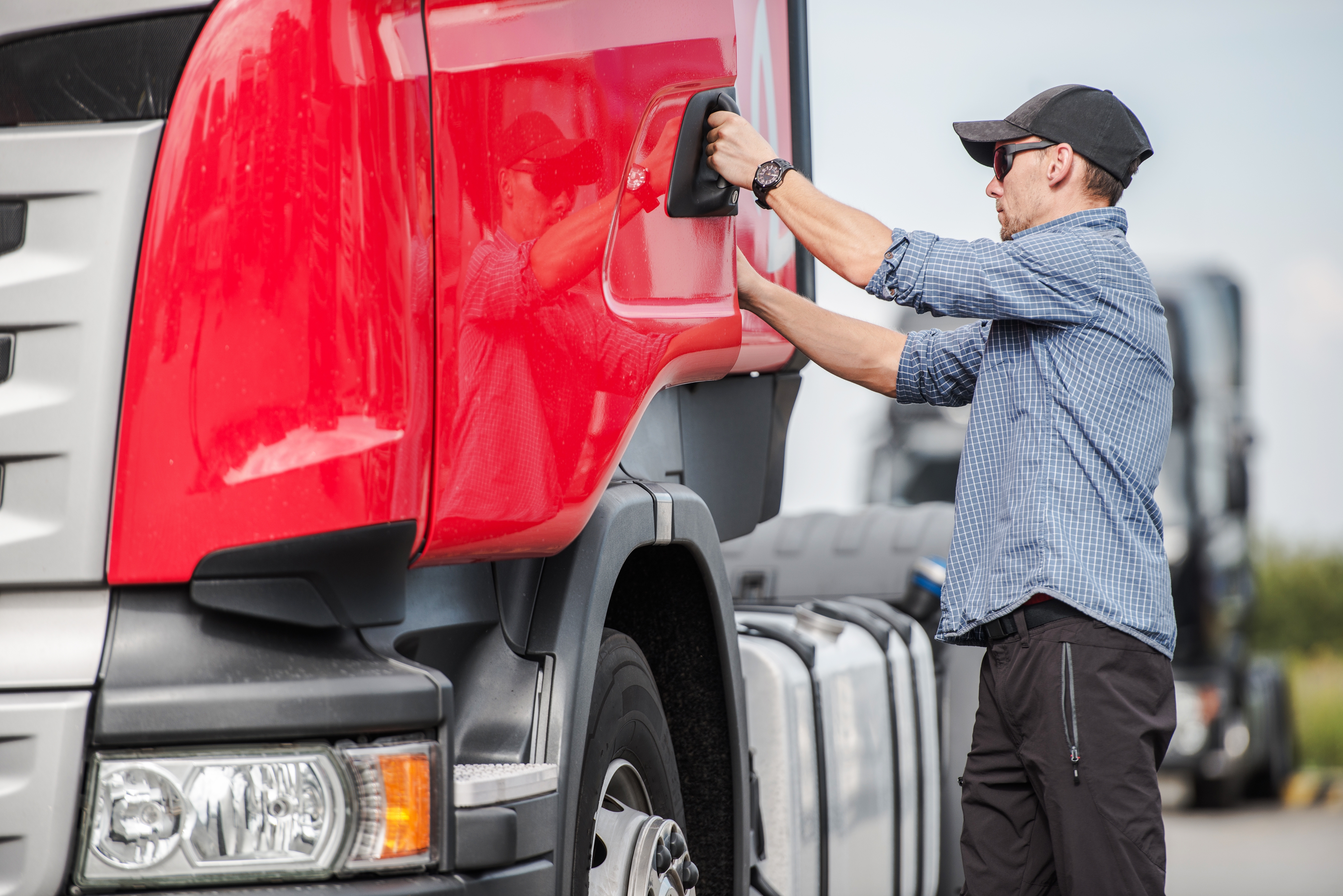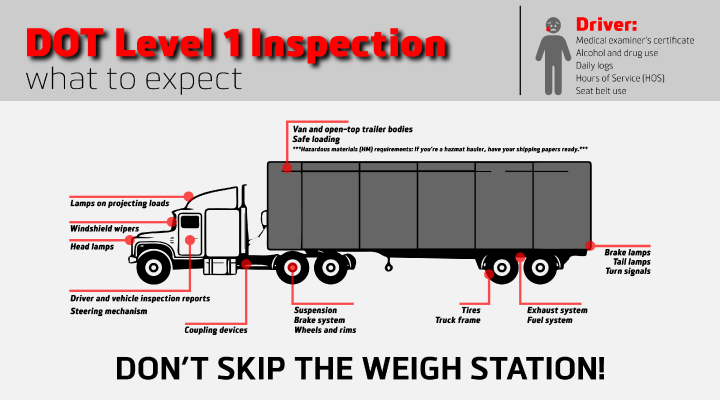by Pride Transport | Jul 28, 2021
All truck drivers are required to stop at a DOT weigh station when traveling the interstate at some point in their trucking career. While having to make this pit-stop may not be the most convenient for you, as the driver, it is an essential service that ensures safety for all travelers that hit the interstate.
Weigh stations are designed to keep everyone on the road, including the truck driver, safe. If you understand the why and what of the weigh station, it will make your stop at one as painless as possible. Doing what you can to be prepared for the weigh station, will help you avoid turning a minor inconvenience into a major headache. With that in mind, here are some things to be aware of about weigh stations.
Why DOT Weigh Stations?
Why do trucks have to stop at weigh stations?
Most states require that any commercial vehicle weighing over 10,000 pounds stop at a weigh station along the interstate. According to federal law, a loaded truck cannot weigh more than 80,000 pounds. Exceptions are sometimes made, but these are only made if the cargo cannot be broken down or separated. It’s important to remember that these exceptions expire upon the delivery of the load and cannot be rolled over onto another load.
If your truck is overloaded and weighs over the 80,000 lb limit, then you could become a safety hazard on the road! If driving conditions become unfavorable, such as rain or dense traffic, a truck weighing over 80,000 lbs is going to be more difficult to maneuver. Stopping distances will increase, you'll be more prone to rollovers, and a blowout can cause significant damage.
Making sure your load is meeting but not exceeding the legal weight is imperative for drivers. Stopping at a weigh station is one way of ensuring that you’re not overloaded and that you’re not posing unnecessary dangers to yourself or those you are sharing the road with. 
Do Trucks Have To Stop At Every Weigh Station?
If a weigh station is closed, the driver is not required to stop. If the weigh station is open, yes you will have to stop. If you know a weigh station is in your future, the best way to be prepared and make the entire process move quickly and smoothly is to perform a check before you hit the open road. Yes, while it’s true that problems can occur when you’re on the road, it’s always wise to make sure things are in order before you leave.
Make sure your load is not over the limit; all your logs are in order before you set out; this can ensure that you avoid delays down the road. But what happens if you don't stop? The penalties for not stopping at a weigh station vary state by state. In some states, you may risk losing your CDL; in others, you could be facing jail time.
So, what happens if the load is overweight?
Fines
If the truck is overloaded, there could be harsh fines attached to the driver. The penalties will vary depending on the state. The fines can range from a few hundred dollars to over $10,000 per offense. In most states, repeat offenders can expect to be charged double, even triple the amount of a standard fine.
Fines vary by state; in Rhode Island, they charge $125 per pound over the legal limit. This can lead to a single fine of $57,000. It’s true. This happened in Warwick, RI; a truck was stopped by the side of the highway because its load, a 560,000-pound generator, was seven times higher than the legal weight allowed by state law without a special permit.
Minnesota charges $100 for any truck that is 1,000 to 1,999 pounds overweight, plus a $75 surcharge. Louisiana charges 1 cent per pound over the legal limit within the 1,000 to 1,999 weight limit.
As far as who pays the overload fines, a driver is always responsible for any driving violations unless there is a contract in place that clearly states the company will cover all fines.
Weigh Station Inspections
Other weigh station inspections might occur when you pull into a weigh station. For example, officials may take the time to check your ELD (electronic logging device) to ensure that you comply with the hours-of-service regulations. If you’re inspected and have problems with the truck or your ELD, a more detailed inspection can occur. This can lead to significant delays. To ensure that you’re keeping your log accurate, personnel at the weigh station may enter your DOT number into a computer and execute a check on your safety rating.
Weigh station officials could also run a full inspection on the vehicle. They can check your truck’s equipment to make sure that everything is in safe working condition. Here are a few things that a weigh station official usually checks:
- Brakes
- Fuel tank
- Kingpin
- Rims/wheels
- Springs
- Tires
- Tubing/Hoses
An official may also check to make sure the truck isn’t leaking any fluids, such as antifreeze, oil, or fuel. A truck that fails inspection at a weigh station may be taken off the road until the driver has satisfactorily remedied the issue. 
Virtual Weigh Stations
With the increase in technology in the trucking industry, your weigh-ins can now be done virtually! These types of weigh stations use a weigh-in-motion system. This system provides information on vehicle records and weight without stopping the truck and interrupting traffic flow.
A virtual weigh station will provide real-time weighing of a commercial vehicle by determining the vehicle’s gross weight based on the number of axles, their weight, and spacing.
Make Your Trips Easier: Drive With Pride
If you’re prepared and your vehicle is in top-notch condition, then stopping at a weigh station should be a smooth and easy process. Our drivers never have to worry about their trucks failing inspections, because we run the best fleet in the business and we are passionate about maintenance and safety.
Ready to get driving? Check our current job openings at Pride.
Additional resources:
Compliance in the Trucking Industry
The Importance of Regular Truck Maintenance
Essential Tips for New Truck Drivers